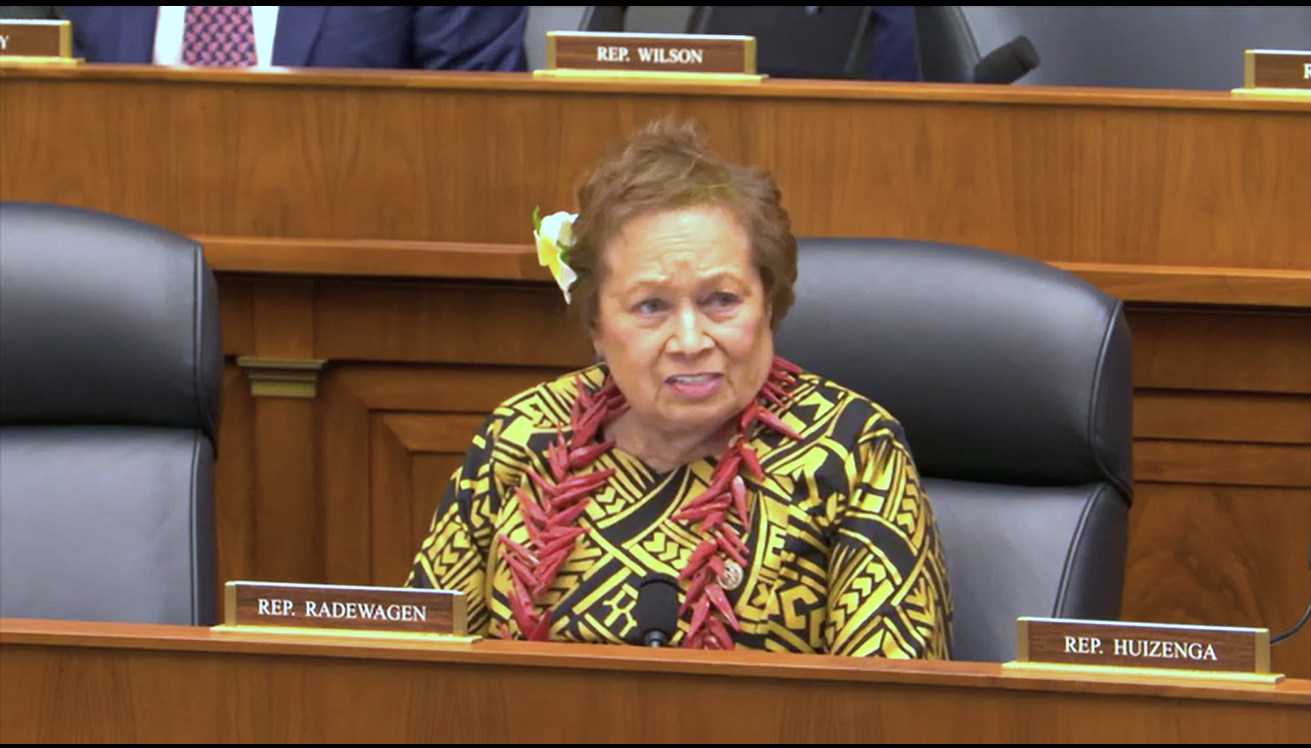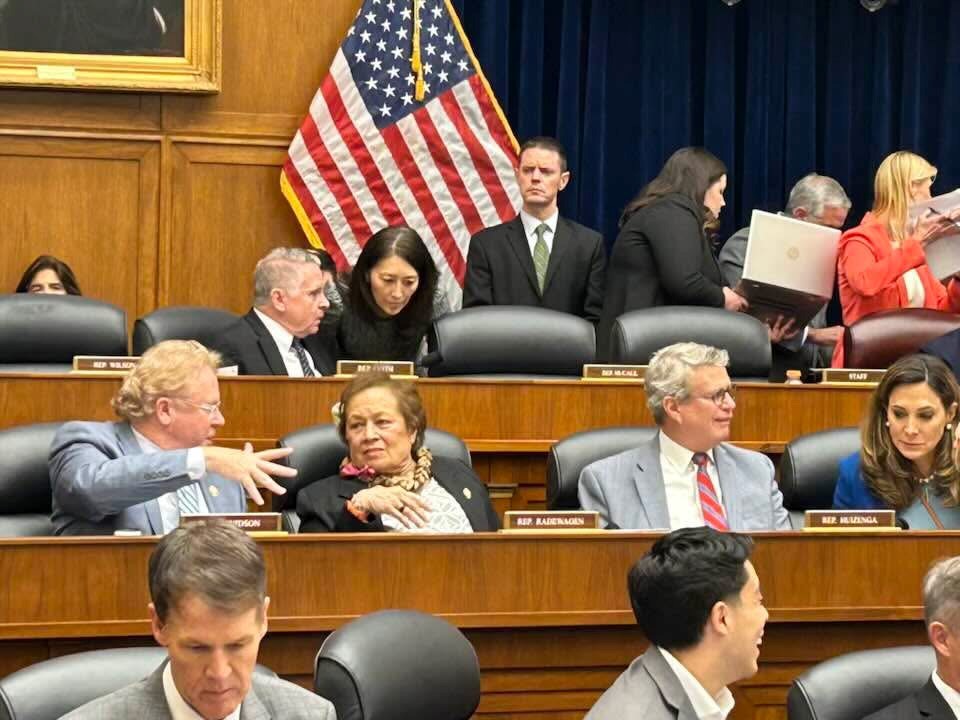Amata’s Amendments Pass as Part of Major State Department Reauthorization Bill
Washington, D.C. – Congresswoman Uifa’atali Amata is highlighting House Foreign Affairs Committee (HFAC) passage of the State Department reauthorization legislation, which the Committee marked up in lengthy effort spanning Wednesday, much of that night, and Thursday.

Amata is a Member of the Committee, one of her three House committees, and she offered two amendments to the bill in the markup effort after 1 A.M. Thursday, and both passed the Committee and are included in the bill. See Amata speaking to the committee.
Amata’s first amendment ensures compliance with the READ Act, which promotes and expands access to basic quality education in partner countries, so the designated State Department official for international education ensures continuous observation and coordination for meeting the statutory requirements of the READ Act.

“Access to basic education should be available to everyone,” Congresswoman Amata said. “When Congress created the READ Act, we recognized the importance of increasing literacy rates throughout the world. I see this firsthand in the Pacific – the United States has provided the tools for partner nations to increase basic education. However, we’re falling behind; the People’s Republic of China is out-competing in providing basic education support in many developing countries by building schools and providing education tools. My amendment ensures that we remain competitive; we must compete in providing basic education in partner nations, because if we don’t, China will.”
Amata’s second amendment increases congressional oversight of reforms at the Millennium Challenge Corporation. The MCC plays an important role in fighting poverty and advancing U.S. interests abroad, but any reforms to its programs, scorecard, or structure must be transparent and accountable.
“My amendment requires the executive branch to report to Congress within 120 days of enactment and at least 30 days before any reforms take effect. It also mandates quarterly updates to the House Foreign Affairs and Appropriations Committees, as well as their Senate counterparts. Congress has a responsibility to ensure taxpayer dollars are spent wisely, that MCC partners meet high standards of governance, and that these investments align with U.S. priorities. Transparency and oversight will strengthen trust in the MCC's mission and ensure it continues to serve both our values and our national interests.”
The overall bill includes the substance of nine other bills, and corrects a long-running lack of proper congressional authorization for many State Department duties. It creates an Under Secretary for Foreign Assistance, and an Assistant Secretary of State for Energy Security and Diplomacy. It requires a Global Public Diplomacy Strategy with annual reports, while reducing excessive redundant reporting requirements elsewhere for the Department to refocus time and attention on the diplomatic mission.
###